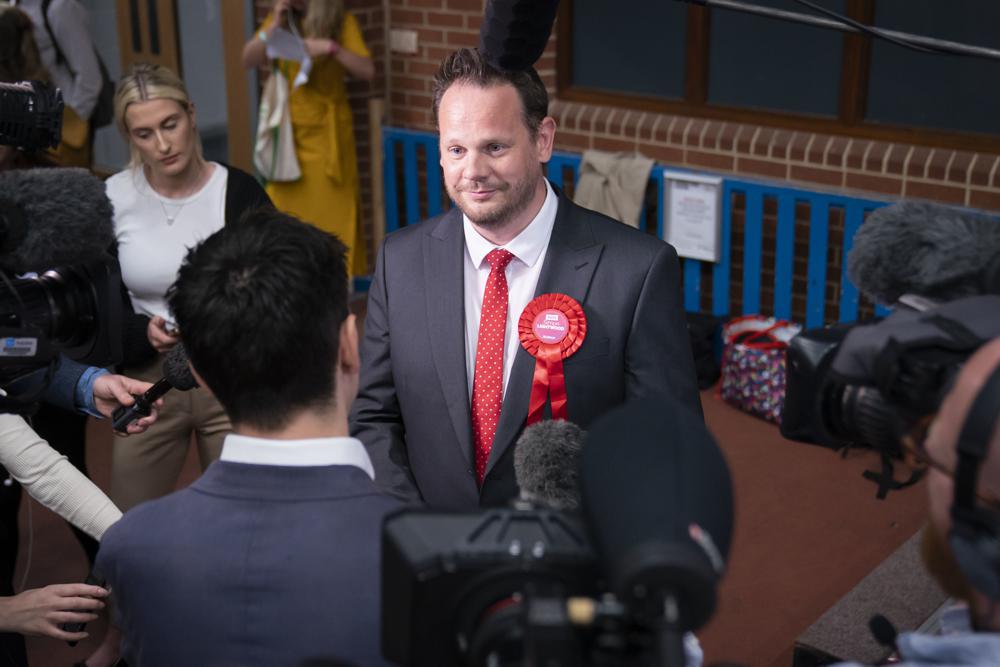British Prime Minister Boris Johnson suffered a double blow as voters rejected his Conservative Party in two special elections dominated by questions about his leadership and ethics.
The party’s chairman quit after the results early Friday, saying the party “cannot carry on with business as usual.”
The centrist Liberal Democrats overturned a big Conservative majority to win the rural southwest England seat of Tiverton and Honiton, while the main opposition Labour Party reclaimed Wakefield in northern England from Johnson’s Tories.
The contests, triggered by the resignations of Conservative lawmakers hit by sex scandals, offered voters the chance to give their verdict on the prime minister just weeks after 41% of his own MPs voted to oust him.
“The people of Tiverton and Honiton have spoken for Britain,” said the area’s newly elected Liberal Democrat lawmaker, Richard Foord. “They sent a loud and clear message: It’s time for Boris Johnson to go, and go now.”
Party chairman Oliver Dowden resigned, saying “our supporters are distressed and disappointed by recent events, and I share their feelings.”
“We cannot carry on with business as usual,” he said. “Somebody must take responsibility and I have concluded that, in these circumstances, it would not be right for me to remain in office.”
“I will, as always, remain loyal to the Conservative Party,” he said, without offering an endorsement of Johnson.
The prime minister was 4,000 miles (6,400 kilometers) away at a Commonwealth summit in Rwanda as the results were announced.
The electoral tests came as Britain faces the worst cost-of-living crisis in a generation, with Russia’s war in Ukraine squeezing supplies of energy and food staples at a time of soaring consumer demand while the coronavirus pandemic recedes.
Speaking in Kigali, Johnson acknowledged the results had been “tough,” and said he would “listen to what people are saying, in particular to the difficulties people are facing over the cost of living.”
Johnson won a big majority in a 2019 general election by keeping the Conservatives’ traditional voters — affluent, older and concentrated in southern England — and winning new ones in poorer, post-industrial northern towns where many residents felt overlooked by governments for decades.








